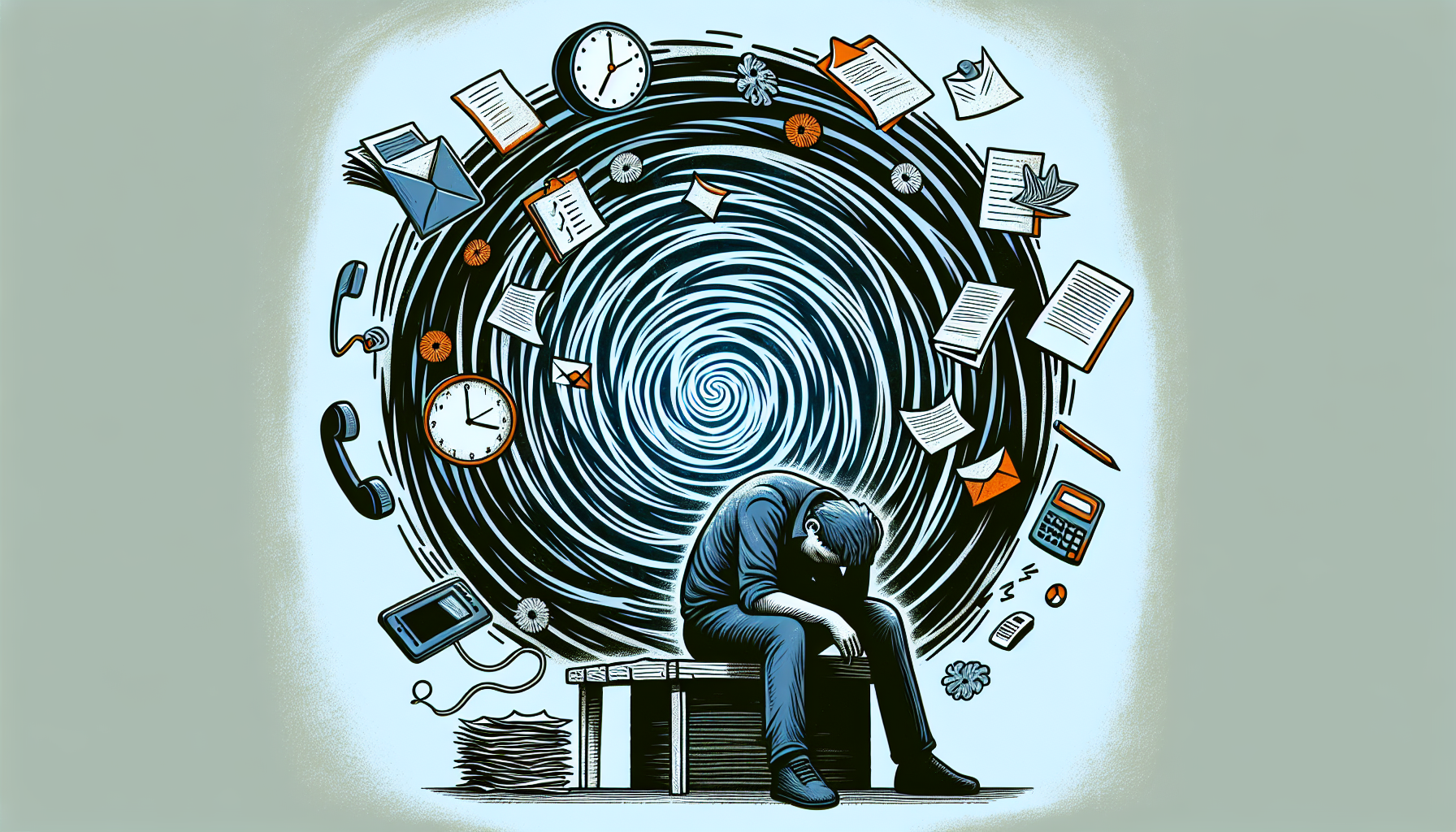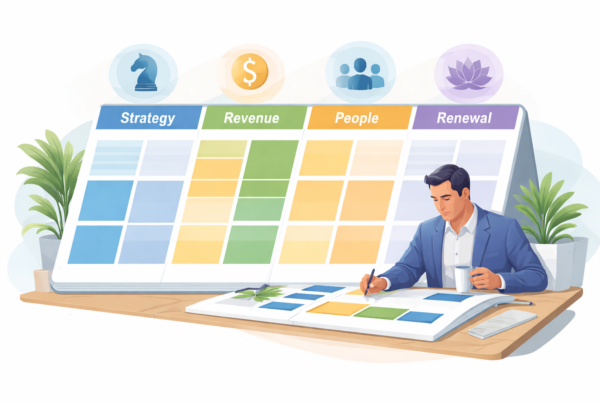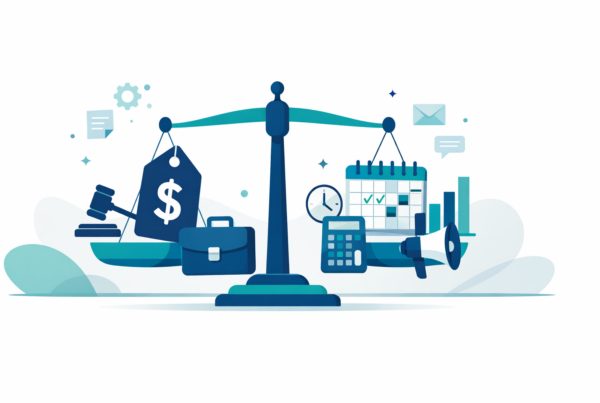Decoding Busyness: Impacts and Insights for a Balanced Life
In the digital age, where it’s common to engage in a whirlwind of activities constantly, the term ‘busyness’ has taken on new dimensions. But is all this busyness truly beneficial? Or is it causing more harm than good? Let’s delve into this intriguing topic and explore the facets of busyness, its impacts, and how we can achieve a more balanced life.
Key Takeaways
- Busyness is often equated with success and productivity in corporate culture, but it can lead to unproductive activity and stress, highlighting the need to distinguish between mere activity and genuine productivity.
- Chronic busyness significantly affects mental and physical health, work quality, and personal relationships, necessitating strategies for better work-life balance and stress management.
- Effective management of busyness includes prioritizing tasks, encouraging rest and recovery, cultivating mindfulness and intentionality, and redefining success to focus on impact rather than activity.
Exploring the True Essence of Busyness

Busyness, defined as a state of being occupied with numerous tasks and responsibilities, has become an integral part of everyday life for many individuals. However, it’s worth noting that busyness extends beyond mere task engagement. It’s about how we perceive and manage the tasks at hand and how we let them influence our lives.
The corporate world has notably contributed to the rise of busyness, often idealizing it and associating it with validation and recognition. This has led to an interesting paradox: being busy does not necessarily equate to being productive, a concept we’ll explore more in this blog post.
The Anatomy of Busyness
The anatomy of busyness is more complex than it initially appears. In our everyday lives, busyness is often viewed as a symbol of achievement, indicating success and independence in one’s professional life. However, engaging in numerous responsibilities and obligations does not always result in productivity. It can lead to unproductive activity, potentially causing delays or disruptions to important projects.
Therefore, the focus must shift from mere busyness to productivity to achieve authentic success. As we unravel the layers of busyness, it’s evident that this concept is deeply intertwined with the corporate culture and our personal lives, leading us to a productivity paradox.
The Paradox of Productivity
In the corporate world, busyness has often been mistaken for achievement. The constant flurry of activity, such as responding to numerous phone calls, emails, and attending meetings, may not necessarily contribute to overall productivity and success. This productivity paradox has given rise to an influx of meaningless activity that fails to contribute to the organization’s overall goals and objectives.
Furthermore, the act of multitasking, often associated with busyness, has been shown to decrease productivity by up to 40%. This highlights the importance of shifting the focus from mere activity to the impact and results of our actions. The focus should shift towards rewarding the impact and results, not just the activity.
Busyness as a Habitual State
Busyness has a way of becoming deeply integrated into our daily lives, often persisting unchallenged and sometimes becoming the essence of our existence. Amidst all the busyness, it has evolved into a status symbol, with people having a tendency to view those who are consistently busy as significant and admirable. However, too much busyness can also be detrimental to our well-being and personal growth.
Business leaders play a crucial role in addressing busyness by establishing work/life balance norms and actively opposing the busyness epidemic. Companies are also implementing practical measures to combat excessive busyness, such as enabling out-of-office email programs that delete emails received during holidays and conducting task audits to streamline or eliminate shallow work.
Embrace Balance and Productivity:
Tired of the relentless busyness? Connect with me to discover how you can transform your hectic schedule into a balanced, productive lifestyle. Let’s redefine success together.
Click here to speak to me and discover what you can do today to escape the Busyness trap
Dissecting the Impact of Chronic Busyness

While busyness may appear to be an unavoidable aspect of life, we must acknowledge its possible repercussions. Chronic busyness can lead to increased stress levels, potentially resulting in:
- burnout
- anxiety
- depression
- other physical consequences
Moreover, it can harm the quality of work and creativity levels, leading to a decrease in work quality, hindered creative thinking, and impeded innovation. The impacts of chronic busyness extend beyond our professional lives, influencing our mental and physical health, relationships, and even social lives.
Mental and Physical Health Consequences
Persistent busyness can result in chronic stress, significantly affecting mental health by inducing feelings of anxiety or depression, heightened stress and overwhelm, and impaired memory and decision-making. This mental overload can result in reduced cognitive functioning and productivity, thereby increasing the risk of burnout.
Similarly, consistently being occupied can elevate stress levels, resulting in physical repercussions such as stroke, heart attack, weight issues, and diabetes. Persistent busyness and the stress it induces can also lead to physical manifestations like muscle tension, sleep disturbances, and fatigue.
Quality of Work and Creativity

Busyness and its relationship with the quality of work and creativity is important to consider. Chronic busyness can result in the following:
- Prolonged stress
- An imbalanced work-life schedule
- Diminishing the standard of work
- Potentially necessitating rework.
Moreover, constant busyness can create a bottleneck in the brain that impairs concentration and leads to overwork, ultimately diminishing productivity over time. On the other hand, periods of rest and relaxation can boost creativity, as they often result in the exploration of various ideas and solutions.
Relationships and Social Life
The personal sphere of our lives is not immune to the effects of busyness. Chronic busyness can result in heightened stress levels, diminished self-esteem, and the potential onset of more severe mental health conditions. Moreover, it can adversely affect relationships by prompting individuals to internalize their stress and emotions, ultimately leading to tension and detachment.
Busyness can also lead to disconnection from social environments, affect relationships, elevate stress levels, and contribute to prolonged loneliness. In the context of family life and parenting, a busy lifestyle can cause stress and disrupt children’s peace of mind. It can also affect the maintenance and strength of friendship bonds.
Strategies to Manage and Mitigate Busyness

While the impacts of chronic busyness can be daunting, there are practical strategies for managing busyness and creating a more balanced life. This requires a mindset shift from concentrating on activity to emphasizing impact, along with a commitment to prioritize our well-being.
These strategies range from practical steps, such as prioritizing tasks and setting boundaries, to deeper approaches, like fostering mindfulness and intentionality. We’ll delve deeper into the details of these strategies to understand how they can aid in managing and mitigating busyness.
Prioritizing Tasks and Setting Boundaries
Effective methods for prioritizing tasks to manage busyness include the ABCDE Method, where tasks are assigned alphabetical priority levels and using a priority matrix or a prioritized task list for the day. Creating a task list and adopting a task prioritization method can help manage busyness effectively.
Establishing boundaries is also instrumental in curbing excessive busyness by:
- Limiting tasks, interactions, or activities that do not represent the most efficient use of one’s time
- Allowing individuals to prioritize their own needs
- Refraining from being excessively reactive to others’ demands
- Reducing unnecessary busyness
Encouraging Rest and Recovery
Rest and recovery play a crucial role in maintaining productivity and well-being as they facilitate the replenishment of energy for the body and mind, resulting in enhanced cognitive function, decreased stress, and improved overall work performance.
Insufficient rest and recovery can result in the following:
- Heightened negative emotional reactions to stressors
- Diminished positive emotions
- Compromised cognitive abilities
- Decreased productivity in the workplace
This highlights the importance of promoting rest and recovery in the management of busyness.
Cultivating Mindfulness and Intentionality
Mindfulness within the context of busyness refers to actively observing new things and being fully present in a fast-paced and stressful environment. Engaging in mindfulness exercises, such as mindful breathing at your desk or taking mindful walks, can help manage busyness effectively.
In addition to mindfulness, cultivating intentionality in the midst of constant busyness involves making more deliberate and conscious choices. This approach allows individuals to control their schedules and lives rather than being swept up in the tide of busyness.
Redefining Success: Beyond the Busyness Metric

As we continue to navigate the challenges of busyness, we need to start to reassess our perception of success. Traditionally, success has often been associated with busyness, with busyness seen as an indicator of productivity and achievement.
However, a broader perspective on success encompasses personal growth, learning, and the ability to change habits moving forward. We’ll further explore how to redefine success beyond the busyness metric and examine the roles leisure and organizational change can play in this course of thought and action.
From Activity to Impact
Shifting focus from activity to impact signifies prioritizing the outcomes and results of one’s actions rather than solely concentrating on being busy or engaged in various activities. This shift can enhance productivity by promoting a more strategic approach to work.
Moreover, focusing on impact positively correlates with overall life satisfaction and happiness. It offers a sense of meaning and purpose, which can assist individuals in dealing with challenges and improving their overall well-being.
The Role of Leisure in a Successful Life
Leisure holds significant importance in achieving success in life. It can alleviate stress, stimulate creativity, and enhance mental well-being. Moreover, participating in leisure activities beyond one’s typical level is correlated with a positive influence on work-related self-efficacy.
Furthermore, engaging in leisure activities that involve creative pursuits has been associated with increased levels of self-reported creative actions. This indicates that participating in creative leisure activities may enhance an individual’s creative abilities.
Changing Organizational Culture
Leadership plays a pivotal role in influencing a company’s culture of busyness. They influence the company culture by ensuring employees comprehend the company’s mission and vision and by spearheading change management initiatives.
However, a culture of busyness has detrimental effects on an organization’s productivity and success, as it can result in burnout, chronic stress, and reduced employee engagement. Thus, it’s vital for organizations to prioritize well-being and productivity rather than busyness.
Unlock Your Potential:
Ready to break free from the busyness trap and achieve more with less stress? Contact me to explore personalized coaching strategies that can unlock your true potential and lead you to greater success.
Click here to speak to me and discover what you can do today to escape the Busyness trap
The Language of Busyness: A Linguistic Look
As we further investigate the subject of busyness, examining the word ‘busyness,’ its definition, evolution, and common misconceptions from a linguistic perspective offers many interesting insights. This linguistic exploration can give us a more nuanced understanding of the term and its implications.
Definition and Evolution of the Word
The term ‘busyness’ can be traced back to Old English ‘bisignes’, which means ‘care, anxiety, occupation’, and it is derived from ‘bisig’, a noun denoting being ‘careful, anxious, busy, occupied’.
Over time, the definition of ‘busyness’ has evolved from being viewed as a necessary inconvenience to being regarded as a symbol of aspiration and prestige in contemporary society.
Common Misconceptions and Misspellings
While the term ‘busyness’ is commonplace in our vocabulary, it’s often misunderstood and misspelled. Some prevalent examples of misunderstandings include the notion that being busy equates to a lack of work-life balance, that busyness is synonymous with productivity, and that a busy lifestyle signifies success.
In addition, the commonly misspelled word “busyness” is often confused with “business,” which has a different meaning. Accurate and correct spelling of words is essential to prevent confusion and ensure effective communication.
Personal Stories: Living with Busyness

Busyness, as a pervasive phenomenon, uniquely impacts each individual. People often share varied experiences with chronic busyness, including using it as a shield against confronting uncomfortable emotions and dealing with the negative effects of an imbalanced work-life scenario.
The pandemic, in particular, prompted some to acknowledge their chronic busyness and address the underlying anxiety it concealed. Various strategies, such as:
- Breaking down large tasks into smaller ones
- Prioritizing tasks
- Planning their approach
- Incorporating regular breaks
- Setting boundaries
Various strategies have been implemented by individuals who are actively engaged in managing their own busyness effectively, for example, time management techniques, prioritization methods, and utilizing a system.
Summary
In conclusion, while busyness is a complex and multifaceted phenomenon, it’s important to remember that being busy does not necessarily equate to being productive. By understanding the true essence of busyness, its impact, and strategies to manage it, we can redefine success beyond the busyness metric and strive for a more balanced and fulfilling life.
Cultivate Mindfulness and Growth:
Join me on a journey towards mindful living and personal growth. If you’re seeking strategies to manage your busyness and enhance your well-being, let’s collaborate to create a more fulfilling and balanced life.
Click here to speak to me and discover what you can do today to escape the Busyness trap
Frequently Asked Questions
Is busyness a proper word?
Yes, “busyness” is a proper word in the English language. It refers to the state or condition of being busy or occupied with various activities, and it should not be confused with the word “business,” which has a different meaning.
Can I say busyness?
You can say “busyness,” but it is not as common as “business.” It refers to the state of being busy in everyday life.
What does your busyness mean?
Your busyness refers to being involved in many activities, resulting in a hectic schedule.
What are the consequences of chronic busyness?
Chronic busyness can lead to increased stress levels, potentially resulting in burnout, anxiety, depression, and other physical consequences, and can have a detrimental impact on the quality of work and creativity levels. It’s important to find a balance and prioritize self-care to avoid these consequences.
How can we manage busyness effectively?
To manage busyness effectively, prioritize tasks, set boundaries, encourage rest and recovery, and cultivate mindfulness and intentionality. These strategies can help you stay on top of your responsibilities and maintain a balanced lifestyle.



